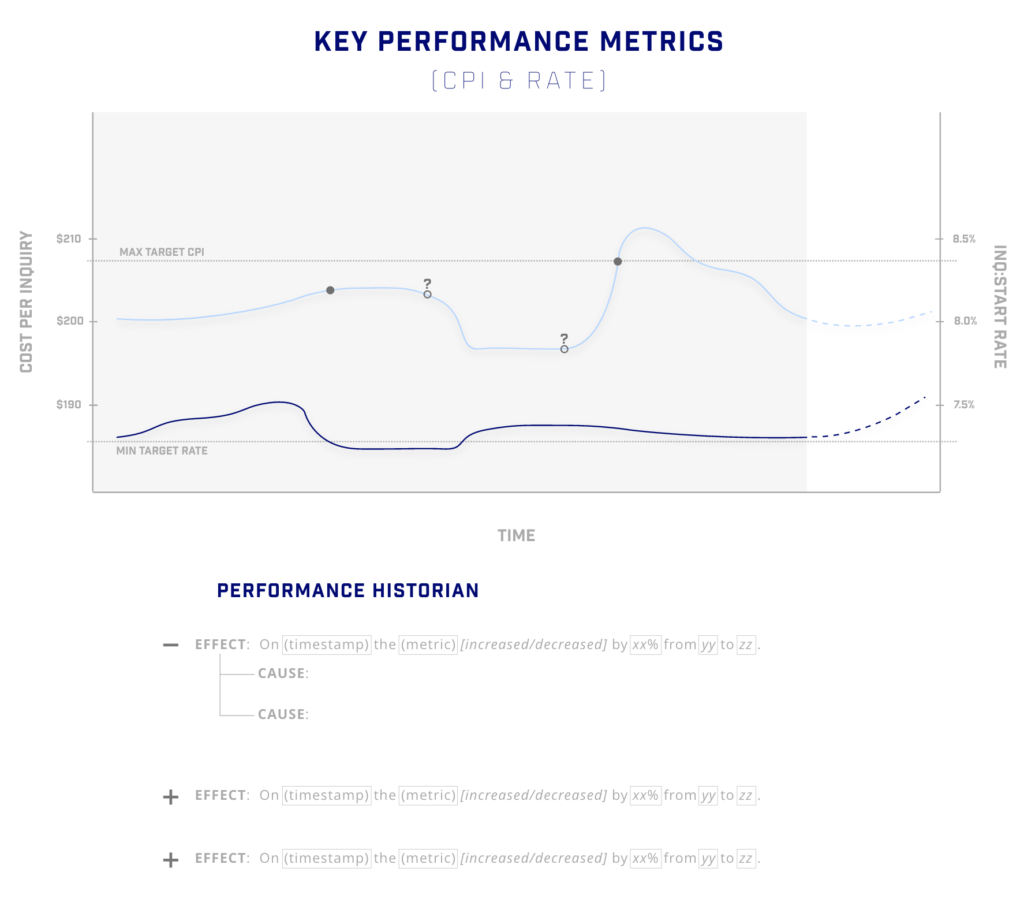Performance Historian
Updated: 03/20/2021
Every business would benefit from a performance historian.
Financial documents and the accounting department are the general business historians for organizations large and small. But you also need someone or something that catalogs what you're learning. There needs to be something helping us understand what's working, what's not working, and what's next.
Currently, this kind of performance historian comes in the form of folk stories passed on from one individual to another. It manifests itself in the "We tried that once and ..." stories. Adding a little structure and better documentation will go a long way.
Why?
Because "We tried that once and it didn't work" is helpful (a little bit at least), but those stories often miss the context of the time, the execution details get lost, and the insight that led to the decisions get murky as time passes.
Should we all create a position called "Performance Historian" and hire someone for it? No. However, you can create a culture and documentation that solves it without adding headcount.
Even if you did hire someone as performance historian, initiatives like this usually don't work unless they are embedded in the every day operations of the business. One way to effectively integrate key items into the habits of an organization is to first create the right environment and a consistent rhythm. For me (only experimented within marketing so far), it's been:
Plan -> Report -> Plan -> Report ... or "Based on our objective, here's what we're going to do and why" then "Here's how that went and what we're doing next"
If you create that formal rhythm then the rest is much easier. You can add things inside plans or reports.
For example, if your report reflects on performance–and it should–then you can add prompts to explain the impact of plans, both expected and unexpected:

This Idea in particular is growing and will be updated often.
